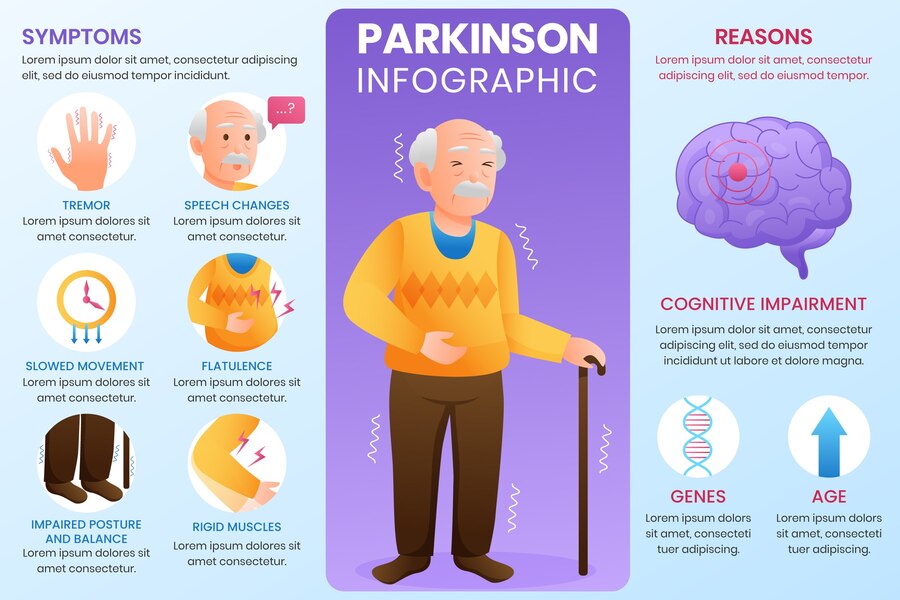Table of contents
Exploring how cannabidiol may offer hope for improved motor control in Parkinson’s patients
Parkinson’s Disease (PD) is a complex, progressive neurological disorder primarily characterized by motor dysfunction. Symptoms like tremors, rigidity, bradykinesia (slowed movement), and postural instability can significantly affect quality of life. As research evolves, more attention is being given to natural and complementary therapies—especially cannabidiol (CBD). In this article, we’ll examine the growing body of studies on CBD and motor symptoms in Parkinson’s and the potential role CBD may play in managing this debilitating condition.
What Causes Motor Symptoms in Parkinson’s?

Motor symptoms in Parkinson’s arise from the degeneration of dopaminergic neurons in the brain’s substantia nigra. As dopamine levels drop, the brain’s ability to control movement becomes impaired. Traditional medications like Levodopa are commonly prescribed to restore dopamine levels. However, long-term use may lead to side effects such as dyskinesia (involuntary movements).
That’s why researchers and patients alike are exploring alternative, more natural solutions—such as CBD.
What is CBD and How Does It Work?
CBD, or cannabidiol, is a non-intoxicating compound found in hemp and cannabis plants. Unlike THC, it doesn’t cause a “high.” Instead, it interacts with the endocannabinoid system (ECS), a complex cell-signaling system in the body that plays a crucial role in regulating functions like pain, mood, sleep, and motor control.
By influencing receptors in the brain and nervous system, CBD may offer therapeutic benefits without the psychoactive effects of traditional cannabis.
Key Studies on CBD and Motor Symptoms in Parkinson’s

1. Brazilian Clinical Trial (2014)
In a small trial, patients with Parkinson’s were given CBD at varying dosages. While motor symptoms did not significantly improve in all subjects, those who received CBD reported better quality of life, particularly in areas of emotional well-being, cognition, and discomfort.
2. Animal Studies on Neuroprotection
Preclinical studies in mice and rats suggest that CBD has neuroprotective properties. These effects may help preserve dopamine-producing neurons and slow the progression of motor symptoms in Parkinson’s.
3. Case Reports and Observational Studies
Multiple case studies document Parkinson’s patients reporting fewer tremors and smoother movement when using CBD oil. Though anecdotal, these accounts have driven further research interest.
4. CBD and REM Sleep Behavior Disorder (RBD)
RBD, a condition where individuals act out their dreams physically, is common in Parkinson’s. Studies show that CBD helps reduce symptoms of RBD, which can also indirectly improve motor symptoms by enhancing rest and recovery.
5. Clinical Review (2020)
A 2020 review of cannabinoid therapy for Parkinson’s found mixed but promising results. It emphasized the need for larger, well-controlled studies, but noted CBD’s potential in alleviating both motor and non-motor symptoms without severe side effects.
Potential Benefits of CBD for Motor Symptoms in Parkinson’s
- Reduction in Tremors: Some users experience a noticeable decrease in tremors.
- Improved Muscle Relaxation: CBD may help with rigidity and stiffness.
- Better Sleep and Recovery: Quality rest is vital for muscle function and recovery.
- Lowered Inflammation: Neuroinflammation is linked to motor symptoms; CBD’s anti-inflammatory effects may offer relief.
- Reduced Medication-Induced Dyskinesia: Some evidence suggests CBD may help manage side effects of Levodopa.
How to Use CBD for Motor Symptoms in Parkinson’s
- Start Low and Go Slow: Begin with a small dose and adjust gradually.
- Choose Full-Spectrum Products: These may offer the “entourage effect” for greater therapeutic impact.
- Speak to Your Doctor: Always consult a healthcare professional before introducing CBD into your routine.
- Opt for High-Quality Products: Look for lab-tested CBD free from pesticides, heavy metals, and synthetic additives.
FAQs About CBD and Motor Symptoms in Parkinson’s
Some individuals report a reduction in tremors, although clinical evidence is still limited. Effects may vary based on the individual and product used.
CBD is generally well-tolerated, but it may interact with medications. Always consult your healthcare provider before starting any CBD regimen.
No. CBD is not a substitute for prescribed medication but may complement existing treatments to improve symptoms and quality of life.
Oils and tinctures are commonly used for systemic effects, while topicals may help with localized muscle stiffness.
Results vary. Some notice effects within a few days, while others require consistent use over weeks to experience improvements.
Final Thoughts
The research into CBD and motor symptoms in Parkinson’s is still developing, but early findings and personal accounts suggest it holds promise. While not a cure, CBD may offer real benefits when used as part of a comprehensive treatment plan.
If you’re considering CBD for yourself or a loved one with Parkinson’s, consult a healthcare provider, choose high-quality products, and start with a conservative dose. As more studies emerge, the future looks hopeful for integrating CBD into Parkinson’s care.





